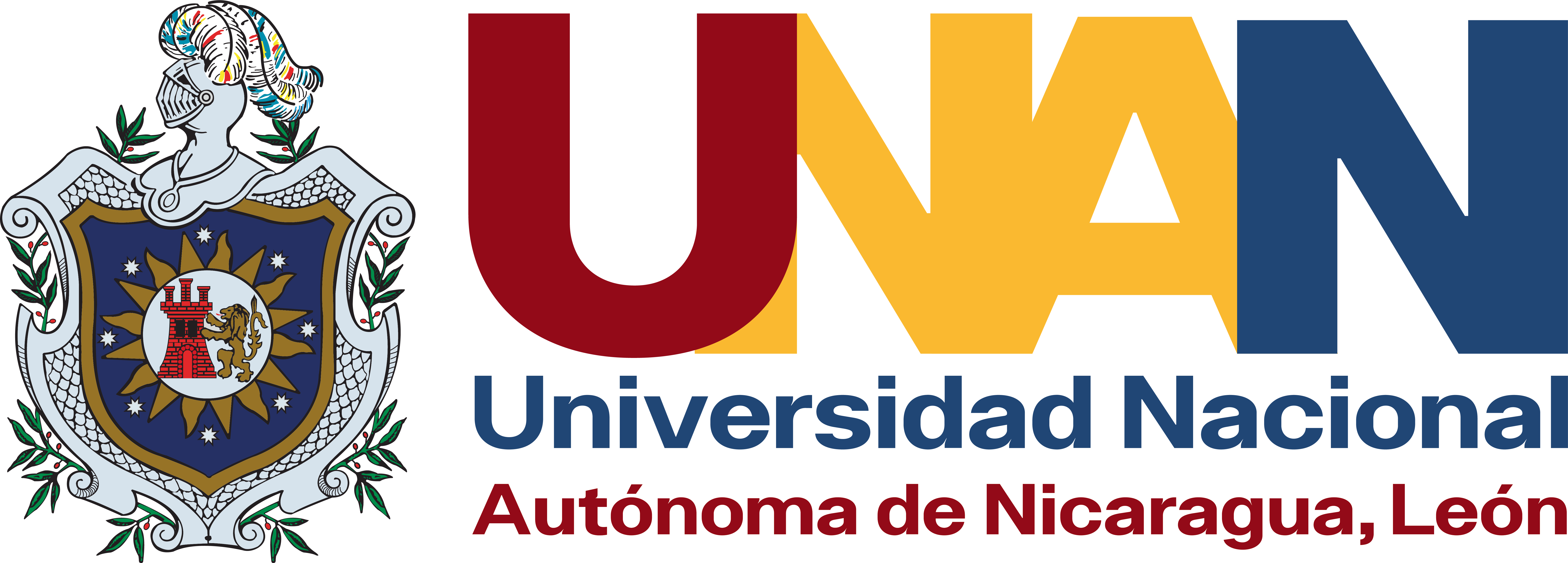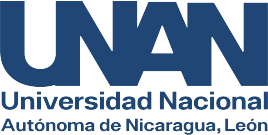
About the Journal
Presentation
Mission
The journal "Universitas (León)" is established as a platform for dialogue and exchange of scientific knowledge under an open science approach among academics, professionals, students, and society in general that promote scientific-technological development both nationally and internationally, as well as the plans and actions promoted by our Government of Unity and National Reconciliation.
Vision
To become a national benchmark in scientific publications both nationally and regionally, achieving international indexing levels.
Areas of knowledge for publication:
- Climate Change and Environmental Management
- Development and Food Security
- Technology, Development and Renewable Energy
- Public Health, Chronic and Infectious Diseases
- Territoriality, Risk and Local Development
- Population, Education, Social Inclusion and Interculturality
- Rule of Law, Democracy, Governability and Citizen Security
- Gender Equality and Equity
- University Management
Focus and Scope
Journal Scope
Universitas (León) journal is aimed at a broad and diverse audience, both nationally and internationally, which includes:
- Academics: Researchers, faculty members, and students from various disciplines who seek to publish their scientific work and stay updated on the latest advances in their fields of interest.
- Professionals: Experts in different fields who wish to share their knowledge and experiences, as well as access research relevant to their professional practice.
- Students: Undergraduate and graduate students seeking quality academic resources and opportunities to publish their own research work.
- General public: Anyone interested in science and technology, as well as topics relevant to the development of Nicaragua and the region.
Multidisciplinary Approach
Universitas (León) journal adopts a multidisciplinary, interdisciplinary, and transdisciplinary approach to address the scientific and social challenges of our time. This means that:
- Multidisciplinary: Research from various disciplines is accepted and published, such as natural sciences, social sciences, humanities, engineering, among others.
- Interdisciplinary: Collaboration among researchers from different disciplines is encouraged to address complex problems from multiple perspectives.
- Transdisciplinary: The journal seeks to integrate scientific knowledge with other forms of knowledge, such as popular knowledge and community experiences, to generate more comprehensive and relevant solutions.
Temporality and frequency of publication
The Universitas (León) journal publishes two issues per year and uses the continuous publication modality, which speeds up the dissemination of articles once the editorial process is completed.
Content
The research to be published is as follows: scientific article, research note, and research essay.
Section policies
Types of contributions:
- Original scientific articles
- Academic essays
- Systematization of experiences
- Documentary research
Open access policy
This journal provides open access to its content, based on the principle that offering the public free access to research helps greater global exchange of knowledge. This journal does not have a publication fee policy. Readers may download, copy, distribute, and print, search, or access the full text of published articles.
Double-blind peer review process
We use a double-blind peer review system for review; the identities of both reviewers and authors remain anonymous. The document will be reviewed by at least two experts: one member of the editorial staff and at least one external reviewer. The review process may take 10 to 12 weeks.
Information services
Indexing and/or information services
- Latindex
- Dialnet
- CAMJOL
- MIAR
- Crossref
- Dimensions
- Google Scholar
- Google Analytic
- Amelica
- Sherpea Romeo
- Semantic Scholar
- ROAD
- Base
NO article processing charges (APC)
Universitas (León) does not charge authors for the editorial process or publication, nor does it charge readers for access to the scientific information available on the digital platform.
© copyright & licensing
The only conditions required under the CC-BY-NC-SA attribution license are:
- Universitas (León) must be clearly identified as the copyright holder of the original publication.
- Any derivative work must be published and distributed under the same open-access license as the original publication.
Most titles are open access under a Creative Commons (CC) license. Publications in the Open Access Repository require specific conditions for the use of their content, as outlined below:

Attribution-NonCommercial-ShareAlike 4.0 International
Adoption of ethical code
ethical statement and publication malpractice
Research articles, reflection papers, and research notes undergo double-blind peer review as part of the core model of our journal, Universitas (León). Our ethical guidelines are based on COPE's Code of Conduct and Best Practice Guidelines for Journal Editors.
Policy on Endogeneity in Publications
To ensure quality, diversity, and transparency in scientific publishing, Universitas (León) maintains a policy limiting the percentage of articles authored by members of the editorial team and reviewers.
-
Publication Limit for Editorial Team and Reviewers
- The journal is committed to ensuring that less than 25% of the articles published in each issue are authored by members of the editorial team, reviewers, or individuals affiliated with the publishing institution.
- A detailed record of author affiliations will be maintained for each issue to ensure compliance with this requirement.
-
Priority to External Authors
- The journal actively encourages submissions from researchers external to the editorial team and the publishing institution.
- If a member of the editorial team wishes to submit an article, they must disclose their affiliation and will not participate in any aspect of the review or editorial decision-making process.
-
Monitoring and Compliance
- The journal will conduct periodic audits on endogeneity to ensure compliance with this policy.
- In case of non-compliance, corrective measures will be implemented in subsequent issues to restore the required balance.
Ethics and consent
Ethics policy
All studies involving human subjects, animals, or plants must be reviewed and approved by an Institutional Review Board (IRB). Animal experiments must be reviewed by an Institutional Animal Care and Use Committee (IACUC). Studies involving high-biosafety pathogens must be reviewed by a relevant committee (e.g., Institutional Biosafety Committee - IBC). The Editorial Board will discuss and decide on any suspected ethical concerns.
If necessary, authors must add a section titled "Consent" and indicate it in the Methodology section. The journal will not hesitate to publish errata, corrections, clarifications, retractions, and apologies when needed.
Consent policies
For manuscripts containing patient/participant data (e.g., personal genomics articles, case reports, clinical studies, surveys, observations), authors must obtain written consent from all participants (or legal guardians for minors or direct relatives).
Authors must ensure that informed consent has been obtained and be prepared to provide copies of these consent forms upon request by the Universitas (León) section editors. If necessary, add a section titled "Consent" in the Methodology section.
Responsibilities of editors
The Editor-in-Chief, section editors, and academic editors of Universitas (León) are responsible for deciding which submitted articles will be published. Editors may be guided by the policies of the Editorial Board and the Scientific Council and must comply with legal requirements regarding defamation, copyright infringement, and plagiarism.
The Editor-in-Chief may consult with other editors or reviewers when making decisions. An academic editor must evaluate manuscripts based solely on intellectual content, regardless of the authors' race, gender, sexual orientation, religious beliefs, ethnicity, nationality, or political philosophy.
The Editor-in-Chief and all editorial staff must not disclose information about a submitted manuscript to anyone other than the corresponding author, reviewers, potential reviewers, editorial advisors, and section editors.
Disclosure and conflicts of interest
Unpublished materials in a submitted manuscript must not be used in the editors' own research without the explicit written consent of the author(s). Authors must disclose any financial or other conflicts of interest related to their work in the Conflict of Interest section of the manuscript.
Responsibilities of reviewers
Universitas (León) reviewers assist academic editors in deciding whether a submitted manuscript should be published. Reviewers must handle all received manuscripts confidentially and must not use information obtained through peer review for personal advantage.
Reviewers should decline to review manuscripts where they have conflicts of interest with the authors, companies, or institutions associated with the manuscript. Reviews must be conducted objectively, and personal criticism of the authors is inappropriate.
Reviewers should express their opinions clearly and with supporting arguments. If applicable, they should identify relevant published works not cited by the authors. Any claim that an observation, derivation, or argument has been previously used must be accompanied by the appropriate citation.
Reviewers or readers should notify the editor of any substantial similarity or overlap between the manuscript under review and other published works.
Responsibilities of authors
All individuals listed as authors must meet certain criteria for authorship. Each author must have participated sufficiently to take public responsibility for the content of the work. At least one author must take responsibility for the entire work, from inception to publication.
Authorship should be based solely on substantial contributions in:
- The conception and design of the study, data collection, analysis, and interpretation.
- Drafting the article or critically revising its intellectual content.
- Final approval of the version to be published.
All three criteria must be met simultaneously. Simply obtaining funding, collecting data, or supervising the research group does not justify authorship.
Editorial boards may request authors to describe each author’s contribution, which may be published. Those who contributed to the work but do not meet authorship criteria should be acknowledged in the Acknowledgments section.
For multicenter studies with a corporate author, all group members listed as authors must meet authorship criteria. Members who do not meet the criteria should be acknowledged, with their consent. The order of authors must be agreed upon jointly by co-authors.
Authors must ensure their work is original. When using third-party materials, proper citations must be provided. Any attempt at plagiarism will result in immediate rejection or, if undetected earlier, retraction and replacement with "Retracted due to plagiarism."
Authors must not submit the same work or substantially similar research to more than one journal, as simultaneous submission is considered unethical publishing behavior, unless explicitly stated otherwise.
Content that is explicitly racist, sexist, or violates fundamental human rights will not be accepted.
Plagiarism detection
Plagiarism detection policy
Universitas (León) verifies the originality of submitted content before publication at two stages: during the editor's review and the peer review process. The editorial/review committee selects questionable segments (phrases, sentences, and paragraphs) from the submitted document and, by copying and pasting them into a search engine, checks for potential plagiarism. If four or fewer identical phrases are found in other publications, the article is returned to the author for proper citation. If the number exceeds this threshold, the article is considered to fail the originality criterion.
Once the author is notified of the originality issue, they may submit a written request to the editorial committee to revise the document. The author is granted a single opportunity to make the necessary improvements. If the article continues to fail the originality criterion, it will be rejected.
As a third mechanism for originality verification, the editorial committee recommends that authors perform a self-plagiarism assessment before submission. Universitas (León) encourages editors, reviewers, and authors to use plagiarism detection tools based on freely accessible software designed for this purpose.
Recommended tools include:
- Viper – http://www.scanmyessay.com/viperdownload.php
- Plagiarisma – http://plagiarisma.net/es/
Editors, reviewers, and authors may use other plagiarism detection programs but must notify the journal’s director of editing and publication, providing the program's name, URL, and whether it is free or commercial.
Additionally, the journal reviews bibliographic references through Crossref Query Services Account Request Form to verify and assign a DOI to each reference.
Use of interoperability protocols
The Universitas (León) journal incorporates the OAI-PMH (Open Archives Initiative Protocol for Metadata Harvesting), allowing its content to be harvested by other distribution systems. OAI-PMH address:
Digital preservation policies
All content of Universitas (León), both past and present editions, is preserved not only in the digital repositories of the Universidad Nacional Autónoma de Nicaragua, León, but also stored in the cloud through paid subscriptions to Dropbox and Google Drive.
Universitas (León) uses the LOCKSS system (Lots of Copies Keep Stuff Safe) to create a distributed archiving system among collaborating libraries, allowing them to create permanent archives of the journal for conservation and restoration purposes.




